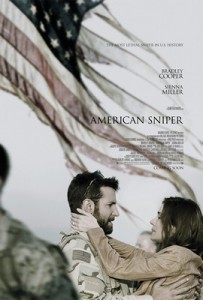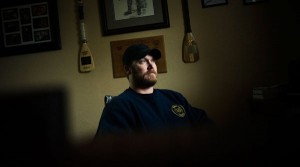Seeking for shadows: My reflection on The Reluctant Fundamentalist
Hello world readers,
Time past like flying, it comes to the end of our semester that almost like a snap. In the past seven month, we had already read and study numbers of great literatures in our class. However, there weren’t one of them able to trigger such ripples in my mind as Mohsin Hamid’s The Reluctant Fundamentalist. As an international student who also studying in the continent of North America, me and Changez shares many similar experiences of living away from home regardless some differences in the setting.
The book immediately caught my interests by its passionate voice(dramatic monologue) and detailed narrative which keep interact with my thoughts. I’m able to find my own “shadows” when the story gradually moving forward, brings out some nearly oblivious memories back to my head. It was hilarious that I felt confuse by the “haunted voice” that the mystery figure Changez sometimes speak to. I couldn’t identify the setting of the scene until I read Peter Morey’s essay and saw the paragraph on the back cover of the novel. However, the story does not wind up in a delightful way, which I thought it might turn into an inspirational story that Changez became a successful financial analyst who working in a global top 500 company in the Wall street. More closer to the end of the story more it struck on my feeling. From the tension between India and Pakistan,and then he being fired by the company, to the nightmare that Erica is missing or possibly suicide and in the end when he have no choice but have to come back to Pakistan and become an Anti-America lecturer.

Although the story isn’t carry on what I expected and my personal life wasn’t severely impact by 9.11 as Changez experienced. However, the story reveals the dilemma situation when he living in America. Changez decide to go back to Pakistan to visit his family during the Christmas but when he arrives at Lahore, he wasn’t satisfied with the living conditions: “I was struck at first by how shabby our house appeared…the electricity had gone that afternoon, giving the place a gloomy air… our furniture appeared dated and in urgent need of reupholster and repair… (Hamid, p.124)” Even the city where I came from wasn’t as bad as over there in Pakistan, but I had similar feeling and discomfort every time I went back. The elevators in my apartment are quite slow and need to maintenance; there are more and more name brand cars on the parking lot of my apartment, compares to the Nissan my parents bought few years ago; lack of parking spaces in the city forcing people take public transit, so as always, I have to go into a subway in rush hour or standing shaky inside the bus full of people; sometimes the north wind bring smoggy weather to my place which got me a sore throat; last but not least, there are people everywhere and it makes me feel annoyed since I had been lived in a small town in Ontario for my entire high school. Me and Changez have found both of our birthplaces become unfamiliar but indeed is because we had changed so much during our adaption of western ethnics and culture. Different people may have different circumstances yet from many individual I had encountered, it is not easy to blend into an entire new society when you’re original from the opposite side of the planet. Despite all the complain I made, deep down in my heart, I’m still loving and feel proud of where I am from. I’d lived in a local host family who are very enthusiastic on volunteer activities and they also makes friends with many newcomers who have various backgrounds. Just like Changez in the story, he often narrative the beauty of Lahore and rich history of Pakistan, I always keen on introduce my city to those who interesting or asking about my background and correct some stereotypes about my country. Come to the close of the story, Changez made a decision to went back to his home. However this may not be the path I have to follow. I feel very lucky by both countries I lives in especially after reading the book and other news on wars recently which I realized how peaceful the society I currently living in. I know how cliche and naive of my realization sounds might like but it does make me feel satisfy.
Note: if you are not familiar with the quote, please read the two paragraphs from page 124.
References:
Picture: http://www.rogerebert.com/reviews/the-reluctant-fundamentalist-2013
Hamid, Mohsin. The Reluctant Fundamentalist. Toronto: Anchor Canada, 2008. Print.
Morey, Peter. ““The Rules of the Game Have Changed”: Mohsin Hamid’s The Reluctant Fundamentalist and Post‐9/11 Fiction.” Journal of Postcolonial Writing47.2 (2011): 135-46. Routledge. Web.


